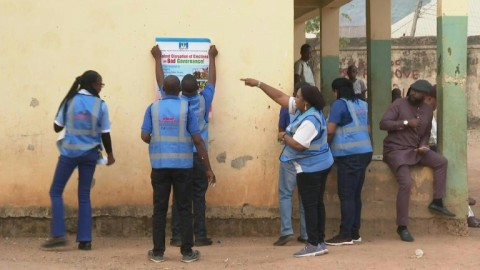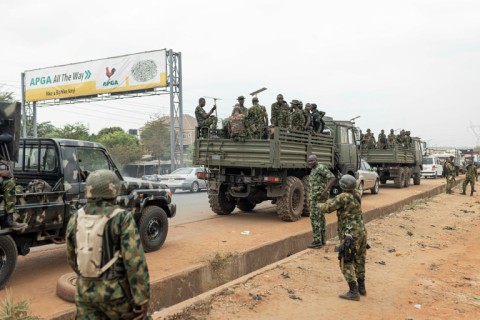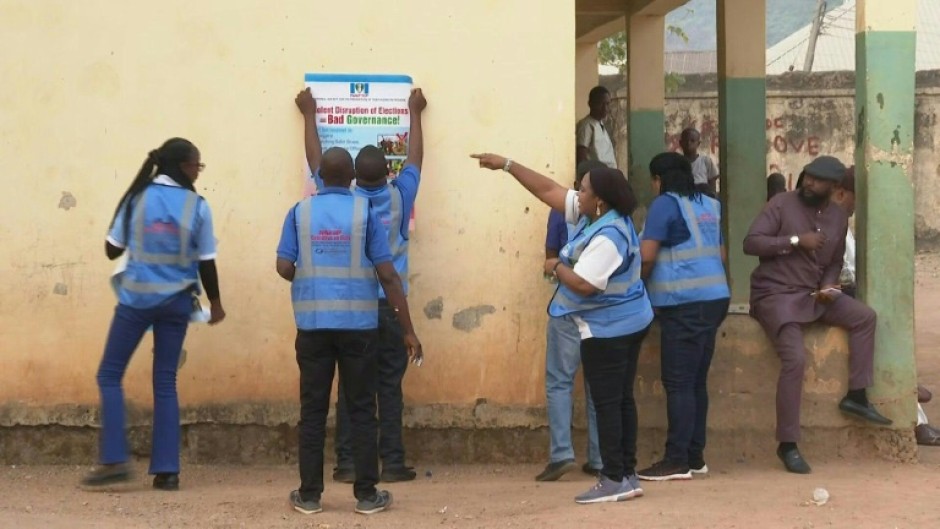
LAGOS - Nigerians voted on Saturday for a successor to President Muhammadu Buhari in a tightly fought race, with three frontrunners competing for the first time in the country's modern history.
Nearly 90 million people are eligible to vote in the election, which is taking place as Africa's most populous democracy grapples with a multi-front security crisis, a sluggish economy and widening poverty.
For the first time since the end of military rule in 1999, a third serious candidate has emerged to challenge the dominance of Buhari's ruling All Progressives Congress (APC) and main opposition Peoples Democratic Party (PDP).
READ: Nigerians vote for new president in closely fought election
Polling stations were meant to open at 7.30GMT, but election officials arrived late in numerous centres visited by AFP in Lagos and in southern Port Harcourt and northwest Kano.
The success of Saturday's election will be closely watched after West Africa's democratic credentials took a knock from coups in Burkina Faso and Mali and Islamist militancy spread north of Nigeria's Gulf of Guinea neighbours.
Megacity Lagos may have put Nigeria on the global entertainment map today for its Nollywood film industry and global Afrobeats stars like Burna Boy, but the new leader of Africa's largest economy inherits a complex set of security and financial risks.

Cash and fuel shortages in the days before the election have also left many Nigerians angry and struggling more than usual in a country already hit by more than 20 percent inflation.
Presidential elections have in the past often been marked by violence, ethnic tensions, vote-buying and clashes between supporters of rival parties.
Nearly 10 million new voters registered this year, most of them under 34, representing an essential bloc if they come out to vote.
Streets in Lagos and other cities were calm as traffic was restricted. Groups of boys took advantage to hold impromptu football matches in the empty roads.
Voters will also cast their ballot for Nigeria's two houses of parliament, the National Assembly and Senate. Polls close at 1.30 GMT.
The Independent National Electoral Commission (INEC) has given no timeline for results, but votes are expected to be tallied within a few days. Under a 2022 law, the official results have to be confirmed within 14 days.

